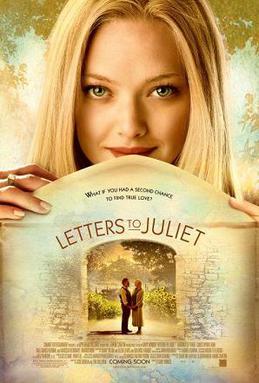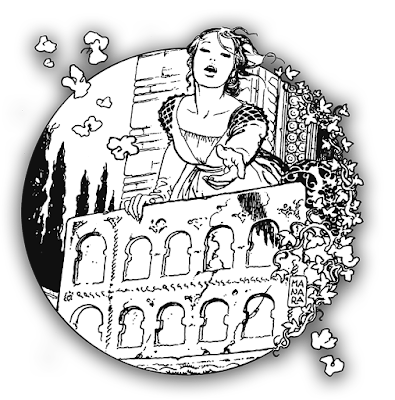 |
| Fletcher |
 |
| Shakespeare |
The English playwright John Fletcher (born in 1579) wrote for the King’s Men who were the acting troupe that produced most of William Shakespeare’s plays. We know that Fletcher collaborated with Shakespeare on
Henry VIII and
The Two Noble Kinsmen. Fletcher also wrote plays on his own but collaborated with other playwrights frequently.
There is a "lost" play titled
Cardenio that is attributed to Shakespeare and Fletcher, at least it is listed that way in the Stationers' Register entry of 1653. It is another one of several mysteries about Shakespeare.
As much as has been written about him, we still don't know much about Shakespeare's life. He left no letters and no handwritten manuscripts. There are only a few contemporary accounts of him though he appears to have been quite well known. Only six signatures by him are known and all are spelled differently.
Of course, the big mystery has been around since the late 1700s. There were those who believed - and some still today - that an undereducated man from Stratford
could not have been the author of all the plays attributed to William Shakespeare.
This seems to have started with Reverend James Wilmot, a clergyman who lived near Stratford who rather weakly claimed that because he could not find a single book belonging to Shakespeare in any private library within a fifty-mile radius of Stratford and no authentic anecdotes about Shakespeare the writer, that he couldn't have written all those plays.
It was decades after Shakespeare's death that people proposed that the plays were written by Fletcher or Sir Francis Bacon or Edward De Vere or Christopher Marlowe or even Mary Sidney Herbert, Countess of Pembroke.
My favorite mystery of William Shakespeare is one that I thought would make a great novel or movie. I actually started writing it at the end of my undergraduate days. That is the mystery of his "lost years." William Shakespeare seems to vanish from the records for more than seven years.
At 21 years old, he was married with three children and living in the small town of Stratford in England. He had some formal schooling, but certainly no university. His father was a glover (made gloves, which were an upper-class purchase and not a bad job) and held some local government offices. William gets married when he gets a girl pregnant. We know he got in trouble for poaching some game from some private land and may have been jailed for it.
Seven years later, he is known to be living in London and is a resident playwright and part-owner of a theater company. What happened to him between 21 and 28?
There is much speculation. He traveled. He studied. Somewhere. But nobody knows just what Shakespeare was doing for all those years in between. Somehow he becomes an actor and a known writer.
I thought a modern writer would have pretty free reign to describe those lost years without much fear of being told it was untrue. Unproven, yes, but no one knows what really happened.
A 2016-17 American dramatic
television series called Will about Shakespeare in his early twenties covers some of my unfinished script. It portrays Will as a struggling playwright who tires of making gloves in Stratford and so goes to London and sell a play he had been working on called
Edward III to a troupe at a theatre owned by James Burbage.
He quickly falls in love with Burbage's daughter, Alice, who is also interested in writing and acting. The series had a lot about Will's Catholicism, which was forbidden and which he had to keep secret. The series probably was an expensive production and only lasted one season.
The lost play,
Cardenio, was a topic I chose for one of my honors Shakespeare papers in college. It seemed a more manageable mystery to tackle in a few pages than the other topic which certainly is book-length.
The plot of
Cardenio is not known, but from what I found the best guess is that it was taken from an episode in Miguel de Cervantes's
Don Quixote. It is not a major section or character in Cervantes' book. It is a story recounted to Don Quixote about Cardenio, a young man who has been driven mad by love. His story has many of the elements of other Shakespeare plays including a duke, marriage forced and thwarted, a woman disguised as a man, a hidden letter, a possible lover's suicide that didn't happen and an escape into the forest.
A translation of the First Part of Don Quixote which contains Cardenio's story was published in 1612 and would have been available to Fletcher and Shakespeare. Playwrights of the day were known to have borrowed basic plots from other authors and reshaped them to the tastes of their audience.
There are records of the play having been performed, but no accounts of the performances or plot. Some scholars suggest that because of Shakespeare's popularity his name may have been attached to the play for promotional purposes and he may have had little or no involvement in the writing. I suggested in my college paper that he may have been the equivalent of today's film "executive producer." Fletcher based several of his later plays on works by Cervantes, so perhaps he read the book and suggested using some of the plot to Shakespeare.
The way that Don Quixote and Sancho discover Cardenio sounds like something the playwrights could use. They find a bag of gold coins and some papers including a sonnet about the poet's tragic romance. The pair searches for the bag's owner and find Cardenio, who is described as a strange bare-footed madman character who leaps about from rock to rock like a mountain goat and whose clothes are in shreds. Cardenio delivers a mad rant about Don Fernando and his own love for beautiful Luscinda.
The story continues after this meeting because Luscinda runs away from her new husband, the Duke and "all's well that ends well" because Don Fernando repents and apologizes to a forgiving Cardenio who is reunited with Luscinda.
Fletcher collaborated with Shakespeare on
Henry VIII and
The Two Noble Kinsmen. He wrote on his own
The Woman's Prize or the Tamer Tamed, which is a sequel to Shakespeare's
The Taming of the Shrew.
After Shakespeare's death, Fletcher appears to have slipped into the exclusive arrangement with the King's Men that Shakespeare had maintained, writing only for that company. But Fletcher only lived nine years after the death of Shakespeare. He was one of many victims of the plague epidemic. By then, he had achieved a similar level of fame to Shakespeare, but his name and fame faded and by the 18th century. Fletcher and most of his contemporary playwrights' fame was then eclipsed by Shakespeare.







